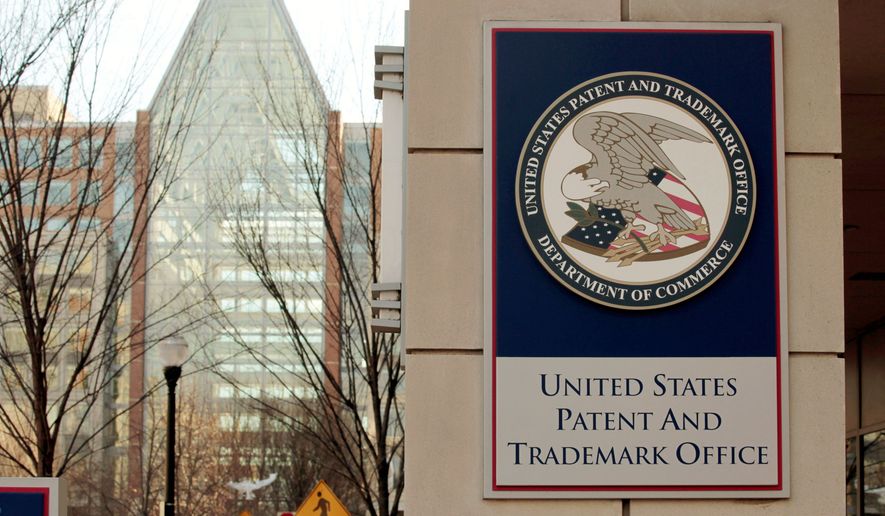OPINION:
Last week, the U.S. Supreme Court heard arguments in the patent case Oil States Energy Services, LLC v. Greene’s Energy Group, LLC. In many ways, the future of American innovation hangs in the balance.
Oil States, a Texas energy company, invented a new way to seal a natural gas wellhead to contain the 15,000 pounds per square inch of pressurized hydraulic fracturing fluid. The company caught Greene’s infringing on its patented intellectual property and filed suit. Rather than defend the accusation of infringement in an Article III court of law, Greene’s filed an inter partes review petition at the Patent Trial and Appeal Board (PTAB).
The Patent Trial and Appeal Board is one of two divisions of the U.S. Patent and Trademark Office. The first is the examining division, which reviews patent applications and ensures they meet the legal requirements for a patent: the claimed invention must be new and not obvious. Our Founders established this division.
Created by the 2011 America Invents Act, the new PTAB division is comprised of politically appointed attorneys who aid accused infringers by canceling the patent rights that were previously granted by the examining division of the Patent and Trademark Office. It’s an insidious arrangement.
You don’t have to be an attorney to see the two divisions are completely at odds with each other. The examining division is busy carrying out Article I, Section 8 of the Constitution, “To promote the progress of science and useful arts by securing for limited times to inventors the exclusive right to their discoveries.” Meanwhile, the PTAB division is busy discouraging the progress of science and useful arts by destabilizing inventor’s rights.
As expected, the Patent Trial and Appeal Board agreed with Greene’s that the Patent and Trademark Office had made a mistake in 2001 by granting the Oil States patent. The panel ruled the invention was obvious, and therefore unpatentable, so it must be revoked. Now, the Supreme Court will decide.
As an inventor, I know firsthand the injustice that resulted when Congress, contrary to the Constitution, transferred judicial power over patent rights to the political PTAB. One of my inventions is Bunch O Balloons, a device that simultaneously fills and automatically seals hundreds of water balloons. The Patent and Trademark Office issued several patents for the invention and Bunch O Balloons became a remarkable commercial success — the No. 1-selling outdoor toy in 2016 and 2017.
Commercial success is irresistible to a rank infringer. Telebrands, a telemarketing company, ignored my patent rights and raced a series of knockoffs to market. I was forced to file suit in federal court. Just before Thanksgiving, the jury found my patents valid, my rights were upheld and Telebrands was found liable for willful patent infringement.
Yet, when the infringer repeated the same arguments in front of the PTAB, the panel ruled my invention was obvious and the patents invalid. Today, my patent rights are in limbo. The Oil States case asks the Supreme Court which branch should have the final say: the Article III courts or the administrative tribunal.
This not just about toys. I have met inventors from every industry who have suffered similarly as the Patent Trial and Appeal Board cozied up to big corporate infringers. Plasma deposition technology, centrifugally cast utility poles, gas line leak detectors, hybrid vehicle transmissions, self-cleaning vacuum filters, wearable biometric sensors, wireless power meters, liquid-crystal display projection optics — these are all amazing inventions killed by the PTAB. No matter what the field, the PTAB death squad looms over every invention that has been or will be conceived.
As a result, patent rights are now subject to the political whims of the agency and depend almost entirely on who serves as director of the Patent and Trademark Office. Big corporate infringers had a heyday under President Obama’s appointee, former Google attorney Michelle Lee, where they succeeded in stripping inventor’s patent rights in nearly 90 percent of PTAB challenges.
What will happen under President Trump? It doesn’t look good for inventors. Before the Supreme Court, Trump-appointed attorneys argued an independent judiciary and trial by jury should no longer protect inventors. At his Wednesday U.S. Senate confirmation hearing, incoming director Andre Iancu indicated we may see President Obama’s attack on inventors continue. This is all the more disappointing when you know Mr. Trump’s favorite uncle, Dr. John Trump, was a very successful inventor who thrived under patent protection.
Inventors have little hope President Trump will fundamentally alter the new political nature of patent rights. Today, our only hope is that the Supreme Court will rescue the American patent system by guaranteeing us our day in court.
• Josh Malone is the Dallas inventor of Bunch O Balloons.




Please read our comment policy before commenting.